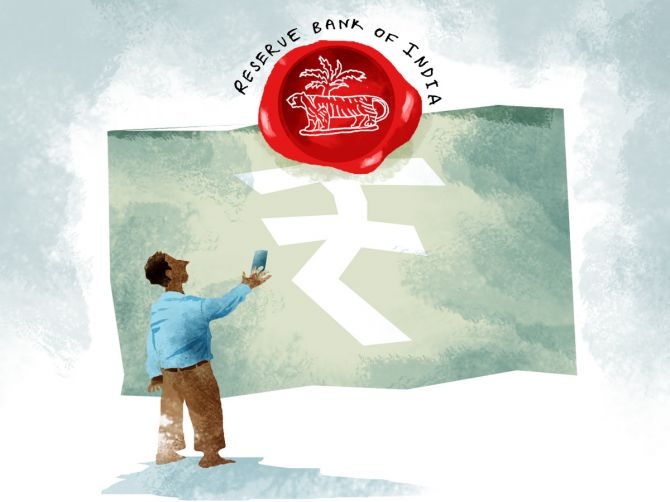'So, we would work with our members to ensure that we as an SRO create some sort of due diligence for fintechs.'

Fintech Association for Consumer Empowerment (FACE) is the first industry body which has been recognised as a self-regulatory organisation in the fintech sector (SRO-FT) by the Reserve Bank of India (RBI).
This is from the three applications it received for the formation of such an entity.
Following RBI's nod, Sugandh Saxena, chief executive officer (CEO), FACE, spoke to Subrata Panda/Business Standard in a video interview on how the organisation plans to onboard new members.
He also talked about how it will enforce its standards and practices on its members.
What is FACE's priority now that it has been recognised as an SRO?
Our first priority is to get all kinds of fintechs into the SRO fold. We are providing a platform, but ultimately, the industry has to be a part of this.
It has to define its own set of rules and standards.
We have 65 members currently but there is a huge universe with different business models and scales.
There are many fledgling startups out there and we want to bring them to our fold. They can contribute and benefit from the network.
Will there be any criteria for adding new members?
There is a vast universe of fintechs out there and we would be reaching out to everyone to be a part of FACE.
We do not have a threshold of scale or business model.
But they have to be a corporate body registered under the Companies Act and fintech, in accordance with the definition in the SRO-FT framework.
We also ask for certain information about founders, investors, scale of business, and clients, and we expect transparency from players who are looking to join us.
Further, they have to abide by FACE's charter, which essentially gives us the power to seek information.
We can also frame rules and standards for the industry and take enforcement actions if the situation demands so.
RBI deputy governor had highlighted that fintechs don't have a track record to evoke trust. How do you plan to address that?
We want to be the trust marker for the fintech industry as an SRO. When we onboard members, we do certain due diligence.
At some stage, there would be technical due diligence on some key parameters that fintechs need to establish trust on -- security of data, company fulfilling its obligations and robust technology.
So, we would work with our members to ensure that we as an SRO create some sort of due diligence for fintechs.
This can give them a trust mark and support their partnership with regulated entities (REs) and the ecosystem.
The trust mark through the SROs will help not just established companies but also small firms to build trust with REs and regulators.
What are the organisational changes that will take place in FACE?
The scale itself means that the team has to be expanded rapidly.
While we leverage on members, we will expand our teams in research, technology and membership servicing.
As far as board composition is concerned, we will function according to the framework.
It says one-third of the board should consist of independent directors, and the rest will be filled up with representatives from different fintech players.
Once we have more members, the board composition will reflect that.
Also, there would be more multiple institutional mechanisms like working groups and sub-sector platforms within FACE.
This will involve members and drive collaboration and consensus.
How would FACE ensure enforcement of its guidelines among members?
What we have conceptualised is that there would be an independent committee, which would have the power to look at cases of non compliance and take action.
And, our agreement with members will enable us to take action against entities found to be non compliant.
The enforcement mechanism will include caution letters, show cause notices and penalties.
Once the committee is in place, it will formulate enforcement mechanisms and approaches to deal with non compliances.
How is FACE looking to bridge the gap between fintech players and regulators?
We have been doing it especially in the digital lending space.
We have to carefully follow signals from the regulator and inform the players in a clear way so that there is no ambiguity around it.
When there are too many perspectives, our role becomes important in formulating a view on what is right for the customers and entire industry.
So, we have to ensure that we get all the voices but then filter through it to get to the core issue.
Then, bring the unified voice of the industry to the regulator.
Additionally, we have to ensure that there is no undue influence from a few members. It can lead to hijacking the agenda on policy matters.
What are the pressing issues of the fintech industry currently?
First, we would need to ensure that our members stay in compliance with regulations and the law.
We know cybercrime and cyber fraud are very important and we must tackle them both from the company's and customer's points of view.
We need close collaboration on multiple fronts. Additionally, we have to work on customer education.
Feature Presentation: Aslam Hunani/Rediff.com










